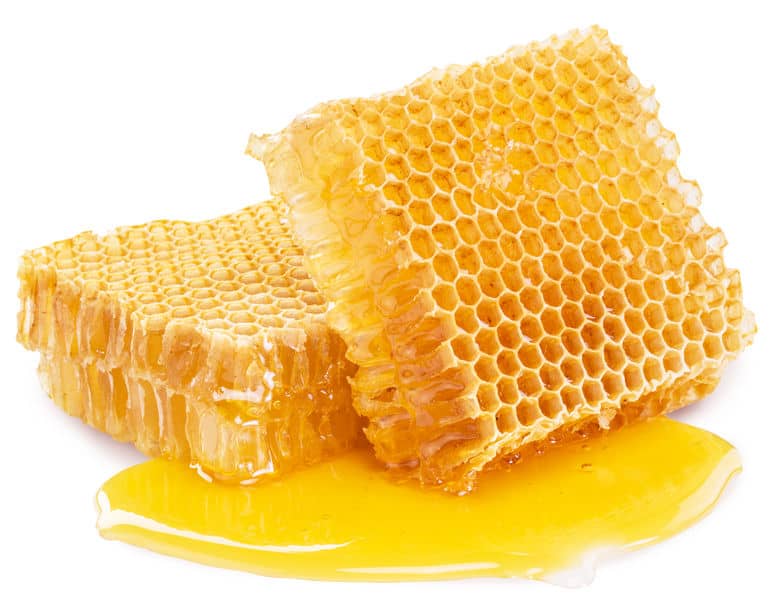We know that bees make honey but just how do wasps fit into this equation?
Wasps are attracted to honey and other sugary things as they feed off carbohydrates. They will even steal honey from a beehive if they gain access. The vast majority of wasp species do not make honey themselves, but a few including the Mexican honey wasp do.
We will take a closer look at why wasps like sweet food such as honey, and whether they are a threat to honey bees.
Are wasps a threat to honey bees?
Some wasps species will attack and feed on honey bees. Social wasp species that have large colonies are most likely to be a threat to bees. The threat to bees is more common in Autumn months once colonies are established.
Bald-faced hornets, part of the Yellowjacket species of wasp, are particularly likely to feed on bees in North America. They are distinguishable by their white and black coloring.

Why wasps are attracted to sugar
Unlike honey bees, most wasps do not make and store their own food source, so they have to go and get the sugar from other sources, whether it be from our picnic tables or honey from a bee.
Wasps colonies can be up to 10,000 in number by the fall each year, so they certainly have a demand for food. Taking honey from a beehive would not be easy for a wasp, but honey on our food or left out on the table will attract wasps just as other sugary foods like jam do.
Do wasps prefer sugar to meat?
While wasps feed on sugar they are predators, and often kill insects, which can include honey bees.
At the beginning of the season in the spring protein sources are used to feed the wasp larvae within the large colonies. The larvae will actually secrete a sugar substance, which feeds the worker wasps in a process known as trophallaxis.
This means that during this time wasps do not need to seek out external sources of sugar. Later in the season, when this food source from the larvae is no longer available, the wasps will seek out carbohydrates elsewhere.
That is not to say that wasps will not opportunistically feed on sugar at other times of the year if it is easily available, as we know from our experience when having summer picnics. See this article about wasps’ attraction to meat.
Do any wasps produce honey?
Wasps do pollinate and like to feed on nectar. Most wasp species do not make honey. Some species in Central and South America are known, however, to make honey. See this article about wasps and making honey
One of these species is the Mexican honey wasp, a wasp that has been seen as far north as Texas. Unlike honey bees, these wasps are also carnivores, but the honey itself, just like bees, is made from nectar.
The honey produced by Mexican honey wasps is very similar to that of the honey bee. These are foraging wasps and extract nectar from a variety of wildflowers.
So, wasps are not especially attracted to honey, any more than other sugary foods. But a few wasp species do make their own honey, and others will steal it from honey bees given the chance.
